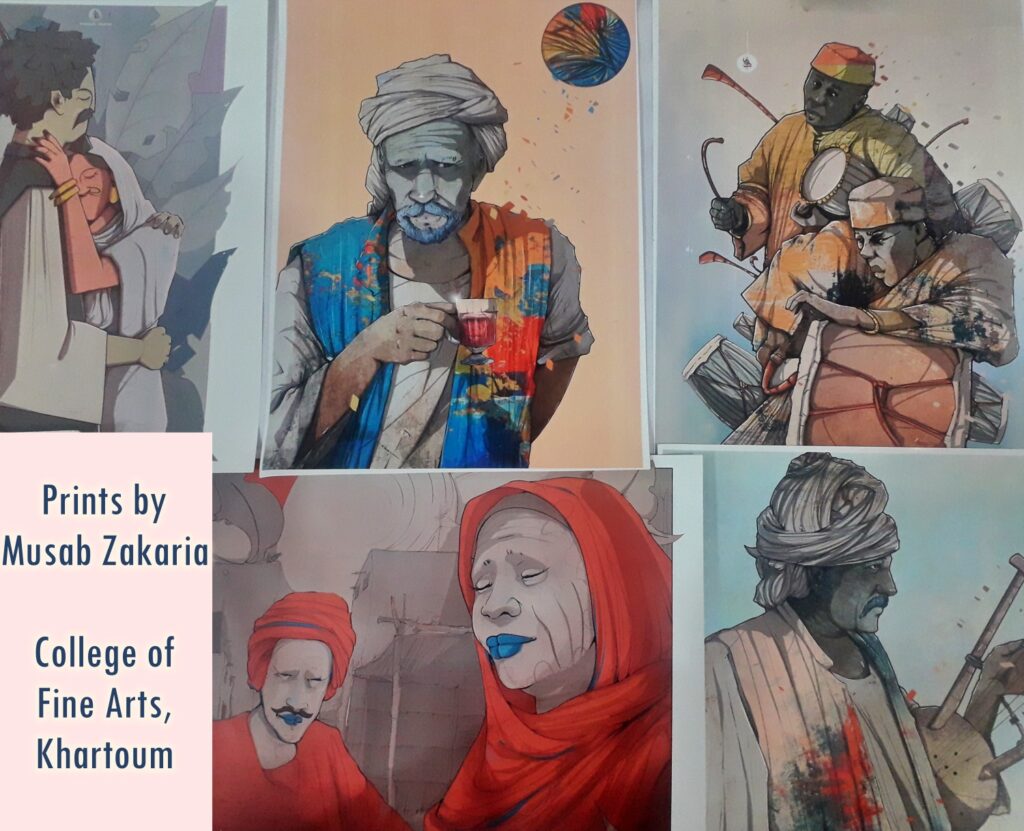Sudan’s resistance committees are still active – by necessity, because they are the only networks supporting the people of Sudan, taking care of public services while the state has failed nearly completely. We should support these democratic popular forces in whatever way possible.

In January 2022 the resistance committees of Khartoum state (the urban agglomeration of Khartoum, which holds between a third and half of Sudan’s population) published a Charter for the Establishment of People’s Authority. This charter is an open source document, and it leaves most specifics of the transitional governance structures open to be decided in a democratic way. But some of its principles reveal what self-governance coordinated by resistance committees may look like:
– Federalism: “the transfer of central state powers to the regional and local government levels” (p6).
– “Radically changing the governance system and policies in the country in a way that allows the participation of local communities in decision-making, in the formulation of public policies, participation in their implementation and oversight over it, in a way that establishes values of participation, accountability, transparency, and sharing, as well as all the values of good governance, in a manner that contributes to resolving the historical impasse regarding the relations between the state apparatus and the local communities; so that the process of governance becomes a strategy for a societal transformation in its political and economic aspects, founded on positive cooperation between the state and society, in accordance with the reality of the political, cultural and social idiosyncrasies of Sudanese societies”. This sentence is long and unwieldy but worth reading carefully in its entirety (p6).
– a firm commitment to transitional justice to resolve all crimes of the past and ensure that no future crimes against the Sudanese people take place.
– the establishment of a national peace conference and a review of the separate peace agreements established in the past years which did not involve the stakeholders (the population).
– a comprehensive reform and restructuring of the entire security sector, bringing it under civilian administration.
– reforming the justice system to allow its independence through internal democratic processes and the establishment of the Rule of Law.
– depoliticizing the civil service and introducing internal democracy and notions of professionalism and merit-based appointment; enabling the civil service to exercise good governance.
– reviving the trade unions for democratic control of the key sectors of the economy, including the formulation of public policies that “break the governance structures of the post-colonial state” (p9).
– rebuilding the social welfare state in the domains of health and education.
– devising a plan for national economic revival that includes renegotiating debt with foreign financial institutions; “plans that consider the equitable distribution of wealth, power, transparent management of public resources, and protection of the environment and local workforce”.
– restoring financial rigor, dismantling the hold of the military on the economy, reviewing all financial agreements since the Bashir coup (1989), systemically combating corruption and recovering all stolen, looted and diverted public assets
– reviewing Sudan’s foreign policy, settling conflicts with neighbouring countries without resorting to violence and withdrawing Sudanese troops from Yemen.
– establishing human rights as a ‘supra-constitutional’ principle, equal opportunities for women in all spheres of public life and government, with positive discrimination policies to redress the current imbalance, and enhancing the participation of youth and disabled people in public, economic and political life.
– preparing a constitution by organizing “public discussion and grassroots conferences that enable the most significant possible popular participation for Sudanese men and women in drafting a constitution” (p12). After a popular referendum to approve the constitution: pass electoral legislation, establish electoral institutions and hold general elections
As a first step, before any of the above can happen, the coordination of the resistance committees (CRC) in the state of Khartoum affirms that the military regime must be overthrown.
The CRC Khartoum submits this charter for discussion, development and signature by the CRCs in Sudan’s other states, but also requests the discussion and signature by “professional unions, pressure groups, feminist, displaced and refugee organizations, labor and student organizations, workers unions and political and revolutionary organizations” against the coup. (p14). It forbids any of the individuals and organizations that have participated in the previous regime or the coup to sign the charter, unless they publish a letter assessing the motivations for their participation and its results.
Admittedly, I have cherry-picked a bit in the charter to extract what seem to me the clearest principles. Some passages are a bit obscure or vague. The full charter can be downloaded here. The Charter for the Establishment of the People’s Authority hopefully reflects the changing social and cultural values of the Sudanese people.
That the European Union and other democratic Western forces have not supported this revolution is saddening.
PS this post was part of a longer post about the Sudanese revolution which can be read here, published 2 years ago.
The banner image shows the beginning of the revolution, when trade unionists and sympathizers flooded the train from Atbara to Khartoum, to spark the nationwide protest movement that overthrew Bashir’s regime.
